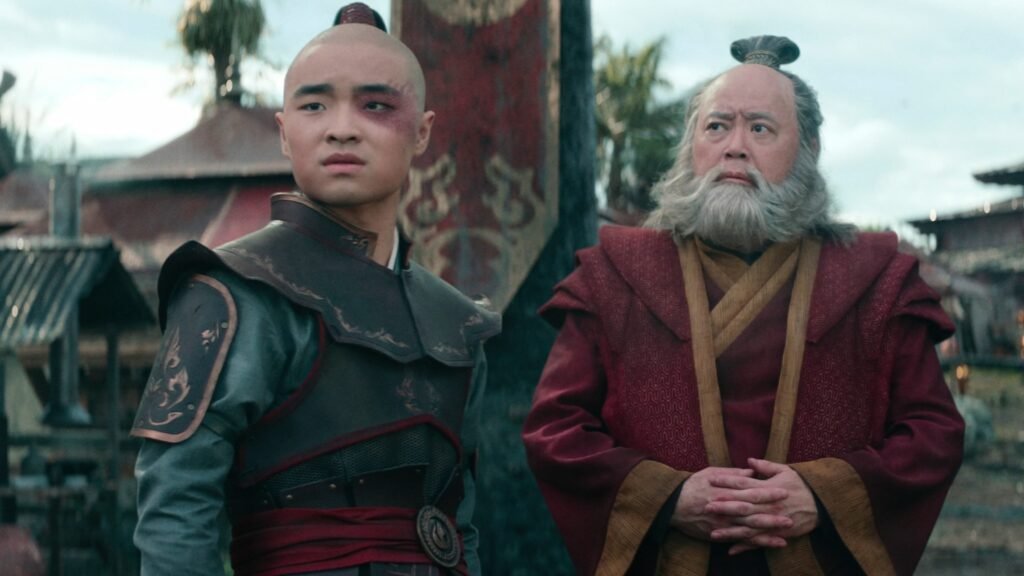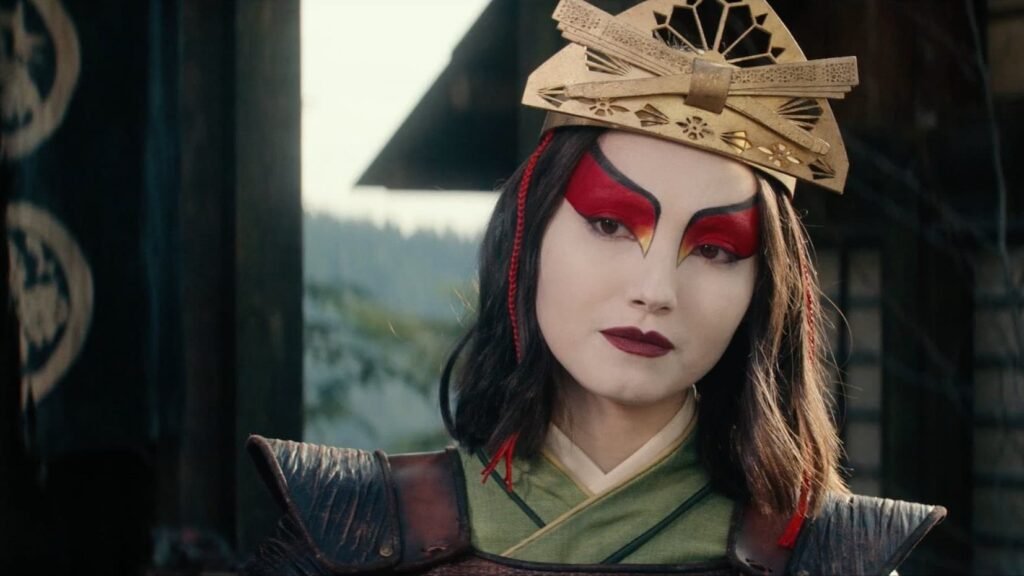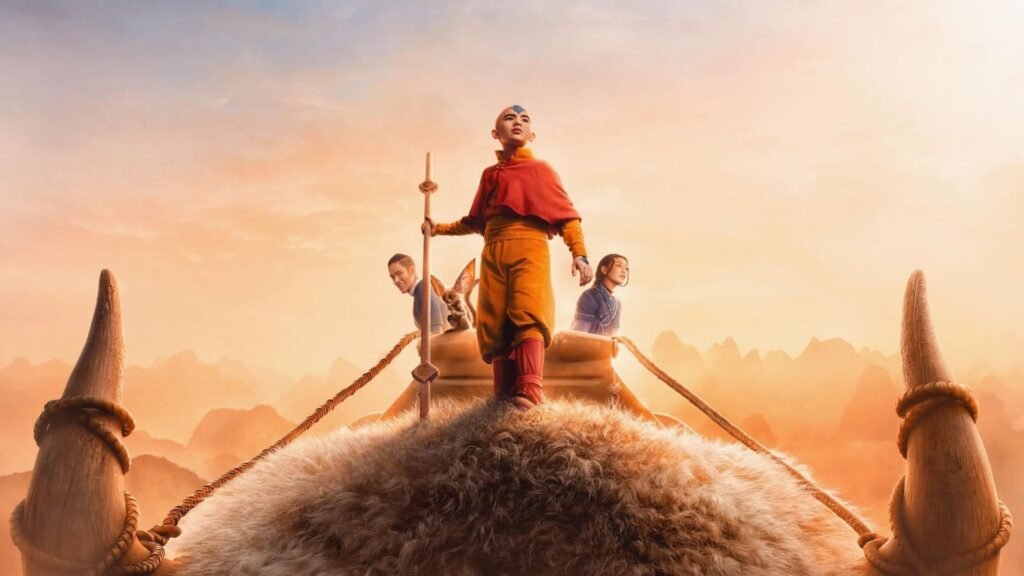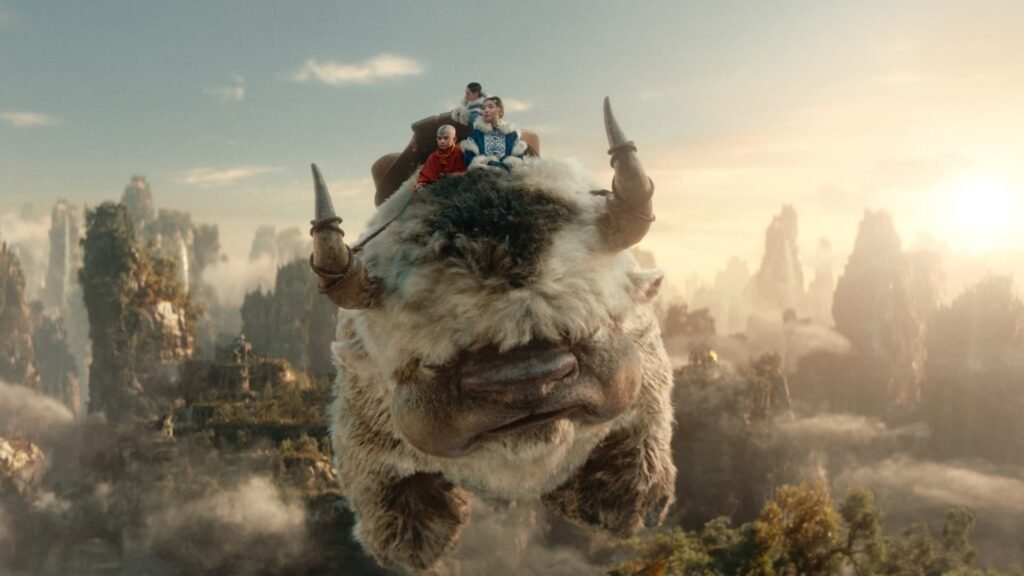In the world of Avatar: The Last Airbender, few families have left as indelible a mark on history as the Fire Nation’s royal lineage. At the heart of this dynasty lie two of the most compelling and complex characters in the series: Prince Zuko and his uncle, the legendary General Iroh.
Both men have undergone profound transformations throughout their lives, shaping not only their own destinies but also the fate of the entire world.
Zuko, the banished prince turned ally of the Avatar, has struggled with his identity and purpose from a young age. His journey from a bitter, vengeful youth to a compassionate leader is one of the most poignant character arcs in animated television history.
On the other hand, Iroh, once a fearsome general known as the Dragon of the West, has evolved into a wise and patient mentor, guiding not only his nephew but also serving as a moral compass for many others he encounters.
The question of who would emerge victorious in a confrontation between these two firebending masters is not merely a matter of physical prowess or bending skill. It delves deep into the heart of their characters, their motivations, and the very nature of conflict itself.
To truly understand the outcome of such a hypothetical battle, we must examine various aspects of both Iroh and Zuko, from their fighting styles and experiences to their emotional states and personal philosophies.
Iroh’s Mastery of Firebending.
General Iroh, despite his often jovial and seemingly carefree demeanor, is widely regarded as one of the most powerful firebenders in the world.
His reputation as the Dragon of the West is well-earned, stemming from decades of rigorous training, combat experience, and a deep understanding of firebending’s spiritual aspects.
Iroh’s approach to firebending is rooted in balance and harmony, drawing inspiration from all four elements rather than relying solely on aggression and raw power.
One of Iroh’s most significant advantages is his ability to redirect lightning, a technique he developed by studying waterbenders. This skill alone gives him a tremendous edge in combat, allowing him to turn an opponent’s most devastating attack back against them.

Furthermore, Iroh’s firebending is characterized by its precision and efficiency, wasting no energy on unnecessary movements or displays of power.
Iroh’s combat experience extends far beyond his time as a general. He has faced numerous powerful opponents throughout his life, including earthbenders during the siege of Ba Sing Se and even spirits in the Spirit World.
This vast wealth of experience has honed his instincts and tactical thinking, making him a formidable opponent in any confrontation.
Zuko’s Evolution as a Firebender.
Prince Zuko’s journey as a firebender is intrinsically tied to his personal growth and self-discovery. Initially, Zuko’s bending was fueled by anger and a desperate need to prove himself to his father, Fire Lord Ozai. This resulted in a fierce but often uncontrolled style, prone to bursts of power but lacking in sustained technique and strategy.
However, as Zuko’s character developed and he began to question his motivations and allegiances, his firebending underwent a remarkable transformation.
After joining Team Avatar and learning the true nature of firebending from the ancient dragons, Zuko’s bending became more focused, controlled, and powerful. He learned to draw strength from inner peace and determination rather than rage and frustration.
Zuko’s unique dual sword fighting style also adds an extra dimension to his combat abilities. This skill, combined with his agility and acrobatic prowess, makes him an unpredictable and versatile opponent.
His experience fighting against various bending styles during his pursuit of the Avatar has also contributed to his growth as a fighter, teaching him to adapt quickly to different combat situations.
The Mental and Emotional Battlefield.
In considering a hypothetical fight between Iroh and Zuko, it’s crucial to examine the mental and emotional states of both combatants.
Iroh, with his years of experience and spiritual growth, possesses a calm and centered mindset that would serve him well in battle. His ability to remain composed under pressure and think strategically gives him a significant advantage.
Zuko, while having made great strides in controlling his emotions, still struggles with inner conflict at times. His passionate nature can be both a strength and a weakness in combat.

On one hand, it fuels his determination and allows him to push beyond his limits. On the other, it can lead to impulsive decisions and leave him vulnerable to manipulation by a more experienced opponent.
The emotional connection between Iroh and Zuko adds another layer of complexity to this hypothetical confrontation. Iroh views Zuko not just as a nephew, but as a son.
His love for Zuko might make him hesitant to fight at full strength, potentially giving Zuko an edge. Conversely, Zuko’s deep respect and affection for his uncle could similarly affect his performance, causing him to hold back or second-guess his actions.
Combat Styles and Techniques.
When analyzing the fighting styles of Iroh and Zuko, we see two distinct approaches to combat. Iroh’s style is rooted in traditional firebending forms, refined over years of study and practice.
His movements are economical yet powerful, each action serving a specific purpose. Iroh’s ability to analyze his opponent’s weaknesses and exploit them with precision strikes makes him a particularly dangerous adversary.
Zuko’s combat style, while incorporating many traditional firebending techniques, is more dynamic and adaptable. His experience as a fugitive and his training with the Avatar have exposed him to a wide variety of fighting styles, which he has integrated into his own unique approach.
Zuko’s agility and quick reflexes allow him to rapidly switch between offense and defense, keeping his opponents off-balance.
Both Iroh and Zuko have demonstrated the ability to perform advanced firebending techniques, such as the creation of fire daggers, whips, and walls of flame.
However, Iroh’s mastery extends to even more rare and powerful abilities, such as breathing fire and generating lightning. While Zuko has not shown the ability to generate lightning himself, he has learned to redirect it, thanks to Iroh’s teachings.
The Influence of Age and Physical Condition.
One factor that cannot be overlooked in this hypothetical battle is the age difference between Iroh and Zuko. Iroh, being significantly older, might face certain physical limitations that could affect his performance in a prolonged fight. His endurance and agility, while still impressive for his age, may not match those of his younger nephew.
Zuko, in his prime, possesses the natural advantages of youth – greater stamina, quicker reflexes, and potentially faster recovery from injuries. These factors could prove decisive in a drawn-out confrontation, allowing Zuko to outlast his older opponent.

However, it would be a mistake to underestimate Iroh based solely on his age. Throughout the series, Iroh has demonstrated remarkable physical fitness and stamina, often surprising others with his strength and agility.
His experience and efficient fighting style could potentially offset any age-related disadvantages, allowing him to conserve energy and outlast a younger, more impetuous opponent.
Tactical Approach and Battle Strategy.
In terms of tactical thinking and battle strategy, Iroh holds a clear advantage. His years as a general in the Fire Nation army have honed his ability to analyze complex situations, anticipate his opponent’s moves, and formulate effective strategies on the fly.
Iroh’s guidance has been crucial in many of Team Avatar’s victories, demonstrating his tactical acumen extends beyond personal combat to large-scale conflicts.
Zuko, while not lacking in strategic thinking, tends to rely more on instinct and adaptability in battle. His approach is often more reactive, responding to threats as they arise rather than planning several moves ahead.
This is not necessarily a weakness, as Zuko’s ability to think on his feet and improvise has saved him in many dangerous situations.
In a one-on-one fight, Iroh’s superior tactical mind would likely give him an edge in the early stages of the battle. He would be able to read Zuko’s movements, predict his attacks, and set up traps or counterattacks.
However, Zuko’s unpredictability and ability to adapt quickly could potentially turn the tide if he manages to surprise Iroh with an unexpected move.
The Role of Environment and Context.
The outcome of a fight between Iroh and Zuko could be significantly influenced by the environment in which it takes place. Different settings could favor one combatant over the other, playing to their respective strengths or exposing their weaknesses.
In an open area with few obstacles, Iroh’s precision and power might give him an advantage, allowing him to unleash the full extent of his firebending without risking collateral damage.
Conversely, a more complex environment with plenty of cover and vertical elements could benefit Zuko, allowing him to utilize his agility and acrobatic skills to outmaneuver his uncle.
The time of day could also play a role, given that firebenders draw power from the sun. A battle during the day might see both combatants at the peak of their bending abilities, while a nighttime confrontation could test their skills under less favorable conditions.

Additionally, the presence of other people or potential collateral damage could influence how each combatant approaches the fight. Both Iroh and Zuko have shown a reluctance to endanger innocent bystanders, which could limit their use of more destructive techniques in a populated area.
Philosophical Differences and Motivations.
Beyond their physical abilities and combat skills, the philosophical differences between Iroh and Zuko would play a crucial role in determining the outcome of their hypothetical battle.
Iroh’s worldview, shaped by his experiences and spiritual journey, emphasizes harmony, balance, and the interconnectedness of all things. This philosophy extends to his approach to conflict, where he often seeks to defuse situations peacefully or find non-violent solutions.
Zuko, while having grown significantly throughout the series, still carries the weight of his tumultuous past. His drive to prove himself and his occasional struggles with self-doubt could potentially be exploited by a wise opponent like Iroh.
However, Zuko’s unwavering determination and his ability to push through adversity are also defining traits that make him a formidable opponent.
In a fight between the two, Iroh might attempt to reach out to Zuko emotionally or philosophically, trying to resolve the conflict without resorting to violence.
Zuko, depending on his mental state and the reasons for the confrontation, might be more inclined to press the attack, seeing the fight as a necessary test of his abilities or a means to prove something to himself or others.
The Impact of Their Relationship.
Perhaps the most significant factor in determining the outcome of a fight between Iroh and Zuko is the deep bond they share. Their relationship goes beyond that of uncle and nephew; Iroh has been a father figure to Zuko, guiding him through his darkest moments and playing a crucial role in his redemption arc.
This emotional connection would likely prevent either of them from fighting at full capacity against the other. Iroh, in particular, has consistently shown a willingness to put Zuko’s well-being above his own, even when Zuko was antagonistic towards him. It’s difficult to imagine a scenario where Iroh would use his full power against Zuko, regardless of the circumstances.

Similarly, Zuko’s respect and love for his uncle would likely hold him back in a serious confrontation. Even during the periods when Zuko was at odds with Iroh, he never truly wished him harm.
The guilt and internal conflict Zuko would feel in fighting his mentor and father figure would almost certainly impact his performance.
Potential Outcomes and Consequences.
Considering all these factors, it’s challenging to definitively state who would win in a fight between Iroh and Zuko. The outcome would largely depend on the specific circumstances of the confrontation, the motivations of each character, and the external factors influencing the battle.
In a purely physical contest, Iroh’s vast experience, superior tactical mind, and mastery of advanced firebending techniques would likely give him the edge.
His ability to redirect lightning also provides a significant advantage that Zuko cannot match. However, Zuko’s youth, agility, and adaptability cannot be discounted, especially in a prolonged fight where stamina becomes a factor.
Emotionally and philosophically, the very idea of a serious fight between these two characters seems unlikely. Both Iroh and Zuko have grown beyond the point where they would willingly engage in combat with each other without extreme provocation. In most scenarios, it’s more likely that they would seek to resolve their differences through dialogue and understanding.
The True Victory: Understanding and Growth.
Perhaps the most important conclusion we can draw from this hypothetical scenario is that the true victory would not lie in physical dominance, but in the mutual understanding and growth that Iroh and Zuko have achieved throughout their journey together.
Their relationship exemplifies the themes of redemption, forgiveness, and the power of positive mentorship that are central to Avatar: The Last Airbender.
In many ways, Iroh has already “won” by successfully guiding Zuko towards a path of honor and compassion. Similarly, Zuko’s ability to overcome his inner turmoil and embrace the wisdom Iroh offered represents a profound personal victory.
The strength of their bond and the positive influence they have had on each other’s lives far outweigh any temporary triumph that could be gained through combat.
Ultimately, the question of who would win in a fight between Iroh and Zuko serves as a thought-provoking exploration of their characters, abilities, and relationship. It allows us to delve deeper into the complexities of these beloved characters and the rich world they inhabit.
But in doing so, we are reminded that the most significant battles in Avatar: The Last Airbender are often those fought within oneself, and the greatest victories are achieved through understanding, growth, and the unbreakable bonds forged between individuals.
Dennis Guy, I am a seasoned film critic and storyteller extraordinaire, is the driving force behind the insightful and captivating movie reviews on MovieReviewFY.com. With a passion for cinema that transcends genres and a keen eye for detail, Dennis brings a wealth of knowledge and experience to the world of film critique.








